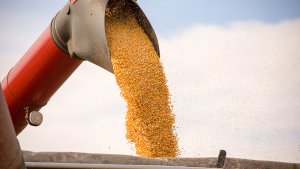Farm management and mental health
A CLEAR CONNECTION

RECENT RESEARCH RESULTS have confirmed what we already knew — many farmers suffer from depression and anxiety in the face of ongoing stress.
| WHAT YOU NEED TO KNOW • Farm business planning starts with assessing the farm’s current business situation against the vision and goals of the farm. • Creating and following a written business plan leads to lower farmer stress levels, and also more effective coping mechanisms. • Farmers can start the business planning process by conducting a SWOT (strengths, weaknesses, opportunities, and threats) analysis. • Some farmers resist the idea of a business plan because they believe farming is too unpredictable for planning, or because they simply don’thave time. |
In 2018, Grain Farmers of Ontario’s Board of Directors took a step to address this issue, through mandating the creation of a ‘Farmer Wellness’ program.
“The program’s purpose is to foster awareness and provide access to prevention, support, and training resources while developing strategic partnerships to further our efforts,” explains Sarah Plater Findlay, Grain Farmers of Ontario’s human resources consultant.
One of those partnerships (which also involved other farming associations and government) supported the creation of a critical recent study called ‘Healthy Minds, Healthy Farms: Exploring the Connection between Mental Health and Farm Business Management’ by Farm Management Canada (FMC).
The results of this national in-depth study highlight how the mental health of farmers can be supported through their implementation of business management practices. Specifically, the study found that creating and following a written business plan leads to lower farmer stress levels, and also more effective coping mechanisms. In addition, farmers who use a written business plan also frequently follow other business practices such as adhering to a budget and benchmarking farm performance.
Yet, in this study, FMC found that only 21 per cent of farmers regularly follow a written business plan, and 48 per cent indicate they never do so, or only do so rarely.
REDUCING UNCERTAINTY
The idea for this study came to Heather Watson, FMC executive director, when she attended the 2018 Canadian Young Farmers’ Forum and heard Dr. David Posen speak about the potential effects of strong and prolonged exposure to stress.
“He spoke about how much of the stress we feel is caused by uncertainty and worry, and how it can cause us to lose sleep, isolate from family and friends, become quick-tempered and have difficulty prioritizing and making decisions,” Watson says. “I knew from our own observations and the recent work of Dr. Andria Jones-Bitton that Canada’s farmers were under a lot of stress.”
Watson connected this fact (and how high stress levels could be detrimental to managing the farm) with FMC’s work to promote “the adoption of farm business practices, including planning, as a way to reduce uncertainty and put measures in place to facilitate prioritization and timely, informed decision-making.”
Farm business planning starts with assessing the farm’s current business situation against the vision and goals of the farm and everyone involved, then putting a plan in place towards reaching those goals while also trying to anticipate bumps in the road.
“Farming is riddled with risk and uncertainty, from weather to markets and the people on your farm team, so it’s important to think about what COULD happen, and put contingency plans in place to mark potential detours if things don’t go according to plan,” Watson says. “What if hail knocks out your crop? What if disease knocks out your livestock? What if your best employee decides to leave? By taking a proactive approach to planning, you’ll be able to sleep better knowing there’s a plan in place, no matter what happens — ultimately, taking some of the uncertainty out of farming.”
WRITTEN ROADMAP
Watson and her team emphasize putting the plan into writing for many reasons. For one, having a written document enables everyone involved to see where the farm leaders want to go and to get excited about the journey ahead. A written farm plan also enables identification of different strengths and potential opportunities, but also areas of weakness and unknowns.
In addition, when obstacles inevitably present themselves, a written roadmap provides guidance that helps curb those natural feelings of uncertainty and being overwhelmed. And during the process of revisiting the plan to go over the options, positive coping mechanisms tend to surface. These might include crunching numbers to work out the best solution, examining the most likely and worst-case scenarios, and asking for help (from your team of farm management advisors, which you should take steps to formalize to some extent if you haven’t already done so).
For these reasons and more, Watson is a firm believer that the importance of creating a written farm business plan cannot be underestimated. “Knowledge is power,” she notes. “With a written plan, you can put measures in place to improve your shortcomings. Really, any issue that arises can usually be linked back to an issue within the planning and strategic management process. While we can’t get rid of all risk and uncertainty in agriculture, doesn’t it make sense to try our best to manage what’s in our control?”
Farmers can start the business planning process by conducting a SWOT (strengths, weaknesses, opportunities, and threats) analysis. There are also business practices assessment tools to get you going, such as ‘Growing Your Farm Profits’ available at www.farmbusinessassessment.ca.
When that is done, you will have a sense of the areas that could use a little work in getting your planning on track, she says, and this becomes part of your plan. From there, many more resources on the FMC website will guide you through the entire process.
DEFINING SUCCESS
While FMC found that a huge majority (88 per cent) of farmers who follow a written business plan say it has contributed to their peace of mind, with over 75 per cent of respondents in the study experiencing mid- to high-stress, Watson and her team were quite surprised to see that 41 per cent reported not following a business plan because they believe they are succeeding without it.
“It just doesn’t add up when you consider the sheer amount of farmers experiencing significant stress,” she says “What this indicates to me, is the need to help farmers revisit how they define success. When we asked those farmers who have a written business plan why they have one, they indicated an increase in profitability and risk management, but also improved family and farm team harmony and reduced stress and anxiety. So, I think we need to help farmers take a look at how they, and the members of their farm team, define success and work that into the vision and goals of the farm.”
PROGRESS AHEAD
In addition, Watson reports that some farmers resist the idea of a business plan because they believe farming is too unpredictable for planning, or because they simply don’t have time.
However, she notes that when elements of the planning process are connected to meeting farmers’ immediate needs, motivation to make a plan increases.
“So, that’s what we’re doing with initiatives like our risk management training program and the AgriShield risk assessment and planning platform,” she says.
FMC is also starting a new national study to gain a better understanding of how the mental health of farm women can best be supported, along with supporting their crucial role in farm business management.
MENTAL HEALTH RESOURCES AVAILABLE TO FARMERS
Grain Farmers of Ontario has developed resources (www.gfo.ca/farmerwellness) in the following areas to help farmer-members and the ag community navigate difficult times:
- Awareness — Sharing the idea that it is a positive step to seek resources when you are struggling and that many people struggle with the same issues.
2. Prevention — Resources to manage various issues.
3. Support Resources — Options if you or someone you know needs support.
A webinar series called ‘Talk, Ask, Listen’ (https://www.domore.ag/programs-1), developed specifically for those in agriculture, is now available. There are four sessions, and the next one will occur December 15. •


























